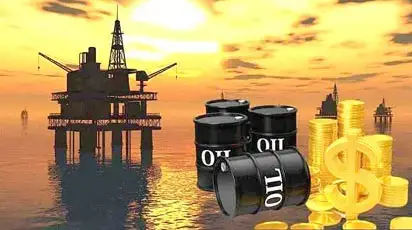
Oil jumps 3 per cent as Israel strikes Iran, others in Middle East
Oil prices surged more than three percent in early Asian trade on Friday following unconfirmed reports of explosions in Iran, Syria and Iraq, sparking fears of an escalation of the Middle East crisis.
West Texas Intermediate jumped 3.66 percent to $85.76 and Brent rose 3.44 percent to $90.11.
The reports come after a missile attack on Israel by Iran last weekend that Israel’s army chief General Herzi Halevi warned would be met with a response.
Tehran unleashed more than 300 ballistic and cruise missiles and attack drones late Saturday, most of which were repelled by air defences.
The country’s leaders said the strike was a legitimate response to a deadly attack on an Iranian embassy building in Damascus that it blames on Tel Aviv
According to AFP, oil prices rallied and equities fell as explosions had been heard in Iran and Syria, fuelling fears of an escalation of the Middle East crisis after last weekend’s missile attack on Israel by Tehran.
The reports followed another batch of data indicating the US economy remained in rude health and compounded concerns that the Federal Reserve will hold off cutting interest rates this year or even hike them again.
Traders have been on edge since Saturday’s barrage by Iran, which Israel’s army chief General Herzi Halevi warned would be met with a response.
Leaders in Tehran said the strike was a legitimate response to a deadly attack on an Iranian embassy building in Damascus that it blames on Israel.
Iran’s Fars news agency reported “three explosions” were heard near Qahjavarestan, near Isfahan airport and the 8th Shekari army airbase, while space agency spokesman Hossein Dalirian said “several” drones had been “successfully shot down”.
Dalirian said on social media platform X there were “no reports of a missile attack”.
Nuclear facilities in Isfahan were reported to be “completely secure”, the Tasnim news agency said.
ABC and CBS News reported the strikes had been carried out by Israel, quoting US officials.
There was no immediate comment from the White House or Pentagon, and the Israeli military told AFP: “We don’t have a comment at this time.”
The news sent shivers through markets, with crude briefly surging as much as four percent on worries about supplies from the oil-rich region, while fears of a regional conflict saw equities tumble.
However, the gains were pared as Iran appeared to play down the matter. Tasnim denied the reports and said the Isfahan nuclear facility was safe, while the International Atomic Energy Agency added that it had not been damaged.
Asia equities fell but were well off their early lows.
Tokyo plunged more than two percent and Taipei shed more than three percent, while there were also losses in Hong Kong, Sydney, Shanghai, Singapore, Seoul, Wellington, Manila, Mumbai, Bangkok and Jakarta.
London, Paris and Frankfurt were also in the red.
The rush for safety also saw the yen rally against the dollar and gold jump back past $2,400, while US Treasuries climbed.
“It is now clear that the escalating shadow warfare between Israel and Iran… has finally ignited the powder keg in the Middle East, and we have moved decisively out of the shadows and into the glaring light of open conflict,” said Stephen Innes of SPI Asset Management.
“It should be noted that this is not a staged response to an Iranian drone attack but rather an indication that we have entered a new phase of this conflict, one that is likely to have significant and far-reaching consequences for Middle East peace and least of all risk markets.”
The mood among traders was already downbeat as they contemplated the prospect of the Fed staying pat on interest rates this year following data showing jobless claims came in below expectations while a gauge of business activity hit a two-year high.
Meanwhile, Atlanta Fed boss Raphael Bostic said inflation is “too high” and he felt there was no need to cut borrowing costs until later in the year.
“I’m comfortable being patient,” he added.
New York Fed chief John Williams and governor Michelle Bowman also said they saw fewer reductions than expected, if at all, this year.
Michael Landsberg, of Landsberg Bennett Private Wealth Management, said: “We are firmly in the camp of no rate cuts in 2024.
“We believe investors should prepare for a higher-for-longer regime when it comes to both inflation and interest rates.”
Key figures around 0810 GMT
West Texas Intermediate: UP 1.4 percent at $83.85 per barrel
Brent North Sea Crude: UP 1.1 percent at $88.10 per barrel
Tokyo – Nikkei 225: DOWN 2.7 percent at 37,068.35 (close)
Hong Kong – Hang Seng Index: DOWN 1.0 percent at 16,224.14 (close)
Shanghai – Composite: DOWN 0.3 percent at 3,065.26 (close)
London – FTSE 100: DOWN 0.7 percent at 7,825.73
Dollar/yen: DOWN at 154.40 yen from 154.67 yen on Thursday
Euro/dollar: DOWN at $1.0643 from $1.0645
Pound/dollar: DOWN at $1.2429 from $1.2438
Euro/pound: UP at 85.64 pence from 85.57 pence
New York – Dow: UP 0.1 percent at 37,775.38 (close)
— Bloomberg News contributed to this story —
Source: AFP


